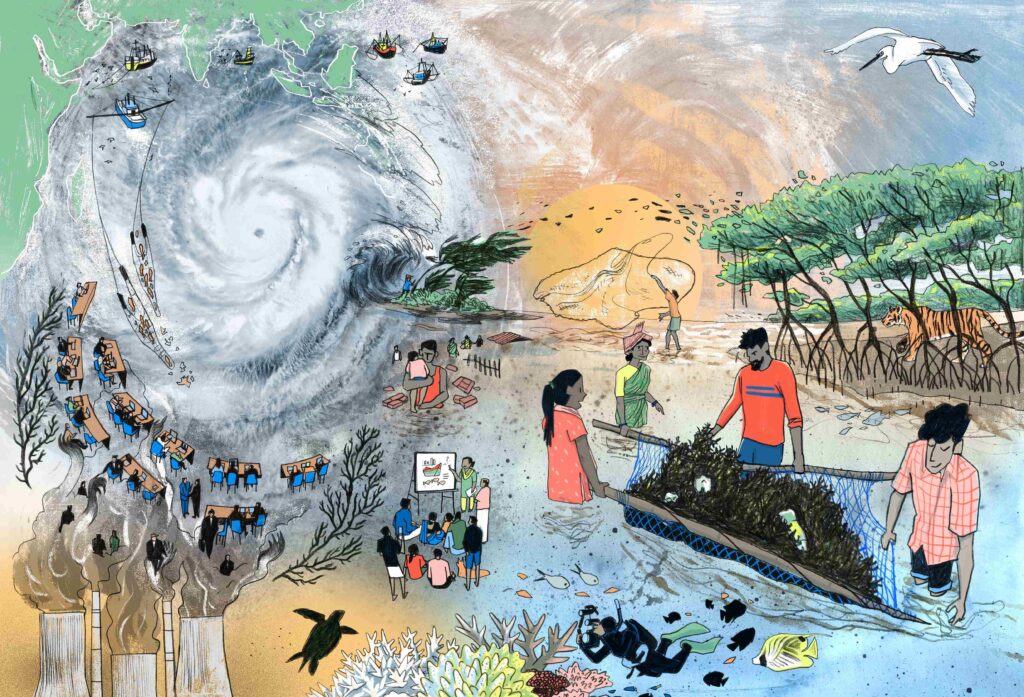A couple of days after Ajith passed away, a message on the WhatsApp group for his memorial enquired about his cat. But Malli would be fine because she inhabited many homes. Much like his beloved cat, Ajith had many institutional homes, and each one thought he belonged to them. As did each of the hundreds on the WA group and innumerable others. Ajith had a special place in everyone’s life.
Many encomiums have and will be written, as they should be. Ajith was an extraordinary person, in the true sense of that word. He was a passionate primatologist and exceptional wildlife biologist, but so are many others. He had an unquenchable thirst for travel to India’s wildest places, but he shared that with his brethren. He was a fine scientist, but he was not alone in that. He was a kind mentor and colleague, but some others are too.
Ajith was more than all that. His endless charm, the constant wit, an almost inexplicable calm in the face of all the slings and arrows of life such as it is, endeared him to just about everyone he encountered. To his academic colleagues, government officials, forest officers, students; to his own mentors, his peers, the next generation, the one after that, the list goes on and on. In a community where success is measured by individual brilliance, Ajith was the finest of collaborators. In an ecosystem where conservationists hold vitriolic, polarised opinions, Ajith walked the tightrope with ease, as if it were a stroll in his favourite forest. In a field where conflict is common, Ajith was unflappable. In a world where pettiness abounds, Ajith was generous to a fault with his boundless enthusiasm. With his stories, his ideas, with his affection.
Ajith began his research career in 1974 following a Master’s degree in Zoology from the University of Kerala. As a research fellow at the Zoological Survey of India in the late 1970s, his academic journey started with the enigmatic lion-tailed macaque (Macaca silenus) in the forests of the Western Ghats. In 1987, he went on to complete a doctoral degree, the first on the species, at the University of Cambridge, under the guidance of Professor David Chivers.

Following his return, Ajith went on to teach and guide research at India’s premier wildlife institutions, such as the Wildlife Institute of India (WII), Dehradun and the Salim Ali Centre for Ornithology and Natural History (SACON), Coimbatore. During this period, he led several research projects not only related to primatology but also dealing with rainforest ecology and fragmentation, species diversity and small mammal ecology and conservation. He guided several students during this period and many of them have continued his legacy, becoming experts in their own right.
In 2004, with the Wildlife Conservation Society, the Centre for Wildlife Sciences and other like-minded institutions, Ajith established the Master’s Programme in Wildlife Biology and Conservation at the National Centre for Biological Sciences, Bangalore. With over 10 batches of students from different parts of India and beyond, this programme is currently one of the most sought after and productive enterprises in the Indian conservation sphere. During these years, Ajith also served as an advisor and mentor to many wildlife and conservation organisations in India. In 2024, fulfilling a long-held dream, Ajith conceptualised and convened the Indian Wildlife Ecology Conference (IWEC) which was attended by researchers from all over the country. Both the Master’s course at NCBS as well as the IWEC conference will continue to benefit from his legacy and vision.
To have your (strong) points of view, and yet accommodate a diversity of others, in fact to embrace them, is a very special skill. Ajith was thus uniquely positioned to be the founding director of his Master’s programme, which he led and advised for 20 years. He also brought that particular flavour to the many faculty positions and advisory roles he held in institutions across the country in his professional career.
Above all this, he was the teller of tales, a purveyor of odd ideas, a connoisseur of cheap rum, a fine fryer of fish (!) and an irresistible wave of merriment. He often said that he wanted to be reborn as an otter. Their love of water, their fondness for fish, some things about their social structure perhaps, resonated with him. Words will fail to capture all that was Ajith, his ineffable aura. Ajith Kumar may have passed away, but he will live long in all our memories. What better tribute can we pay than to try to be just that little bit more like him.






